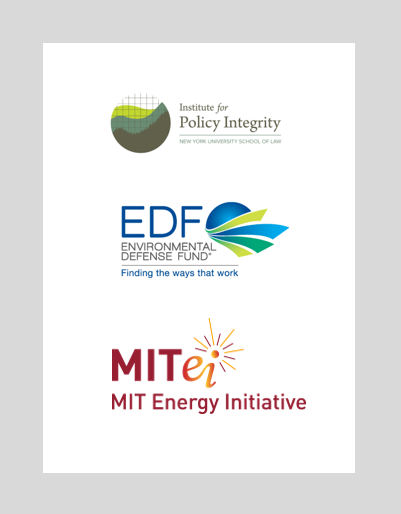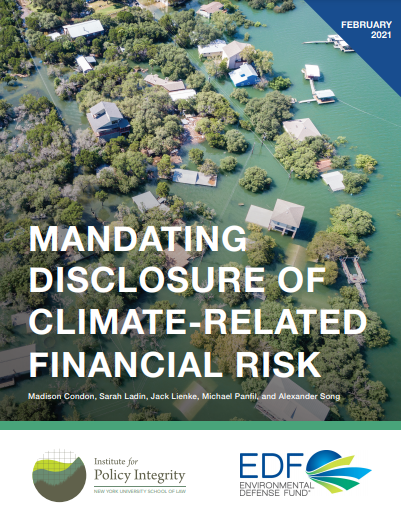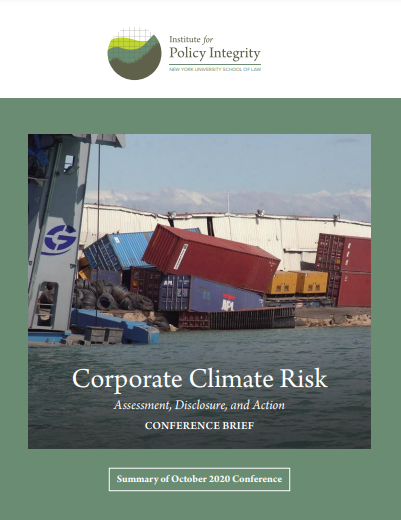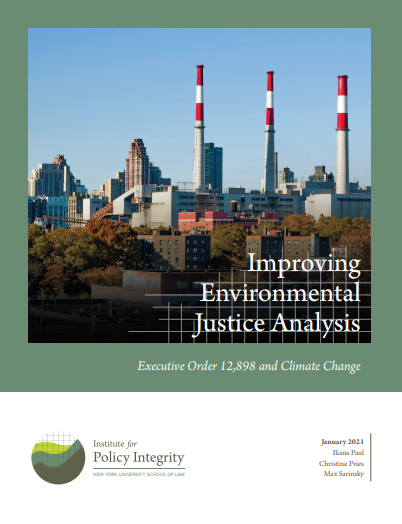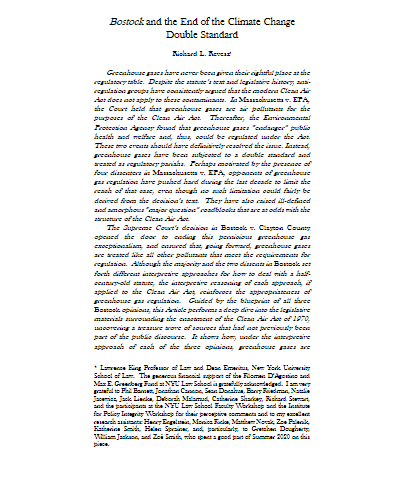The Institute for Policy Integrity produces a variety of publications. Our research reports develop in-depth research on our core issues, while our policy briefs and issue briefs provide focused analysis on more timely or particular topics. Our academic articles and working papers offer original scholarly research and analysis from established experts as well as fresh new voices.
Latest Publications
-
Rate Design and Distributed Energy Resource Integration: Impacts on the Environment and Distribution System Costs
This project looks at the effects of different retail tariff designs on the deployment of distributed energy resource (DERs), and their subsequent effect on pollution, electric system costs, and customer bills. We use smart-meter data and techno-economic models to simulate the effects of more granular and cost-reflective tariff designs on DER investment and use.
This project is supported by the Alfred P. Sloan Foundation, and is a collaboration between the Institute for Policy Integrity, Environmental Defense Fund, and the MIT Energy Initiative.
-
Mandating Disclosure of Climate-Related Financial Risk
Climate change presents grave risk across the U.S. economy, including to corporations, their investors, the markets in which they operate, and the American public at large. Unlike other financial risks, however, climate risk is not routinely disclosed to the public. This report, authored by Policy Integrity and the Environmental Defense Fund, urges the Securities and Exchange Commission to issue new, mandatory disclosure rules focused on climate risk.
-
Corporate Climate Risk: Assessment, Disclosure, and Action
Conference Brief
On October 2, 2020, the Institute for Policy Integrity and the Volatility and Risk Institute at NYU Stern School of Business convened a conference bringing together investors, companies, researchers, and regulators to discuss climate-related financial risks and identify opportunities to better assess, report, and act on them. This brief summarizes some of the major points of discussion from the conference, which featured different perspectives on various policy, economic, and legal issues.
-
Improving Environmental Justice Analysis
Executive Order 12,898 and Climate Change
Distributional and equity concerns have typically received short shrift in federal administrative decisionmaking, particularly with regard to actions with climate-change impacts. This report aims to aid advocates and policymakers in meaningfully addressing the disparate climate impacts of federal actions.
-
Bostock and the End of the Climate Change Double Standard
Guided by the blueprint of all three Bostock opinions, this article, published in the Columbia Journal of Environmental Law, performs a deep dive into the legislative materials surrounding the enactment of the Clean Air Act of 1970, uncovering a treasure trove of sources that had not previously been part of the public discourse. It shows how, under the interpretive approach of each of the three opinions, greenhouse gases are unquestionably pollutants for the purposes of the Clean Air Act. Because the approaches in the majority and dissents in Bostock—and thus a majority of the current Court—all point in the same direction, the era of greenhouse gas exceptionalism should now be over.

